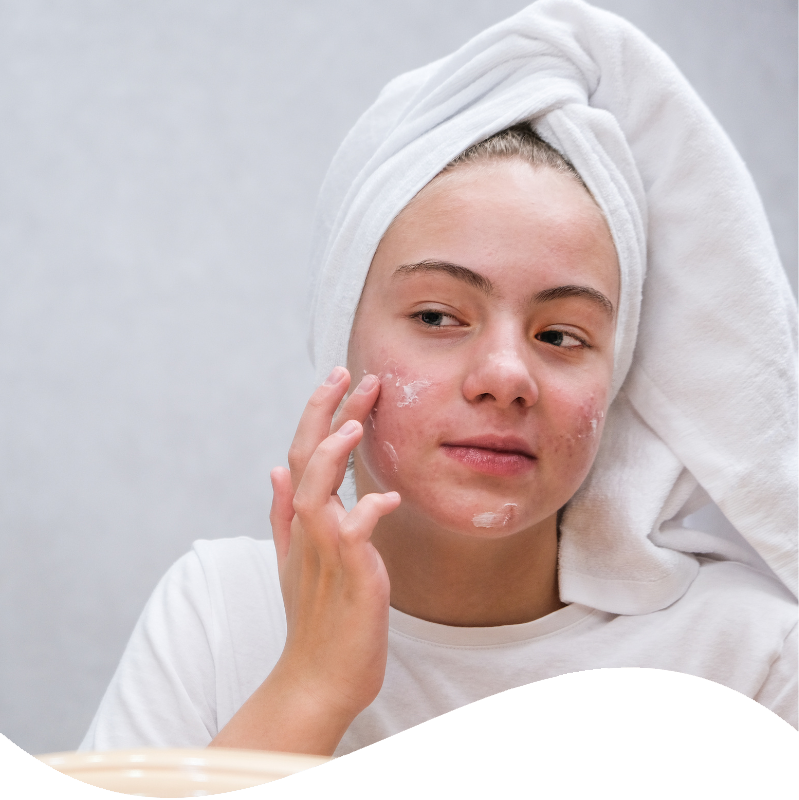Acne
![]()
Treating acne is important, not just to reduce the chances of scarring but also to regain the self confidence that comes with seeing the acne go and clear skin return. Dr Weston will assess your skin and discuss the most suitable treatment choices for you in order to personalise your acne treatment.
What is it?
Acne is a skin problem that starts when skin oils and dead skin cells clog up pores on the face, chest or back. It produces spots that range from small blackheads and whiteheads to larger pimples and, occasionally, big solid red lumps that may be painful. Some people just have a few spots, others can have hundreds of spots or a range of all types of spots. Acne is very common among teenagers. It can persist as adult acne in a smaller group of people.
What causes it?
Acne will often start in the teen years when hormones affect the skin, making it oilier. Skin oils and dead skin cells can block the pores, trapping bacteria and sebum which causes swelling, redness and sometimes pus. Some people will have a family history of bad acne or may be taking some medicines that can trigger it. The humidity of the environment or creams applied to the skin can also contribute to acne flares.

What are the symptoms?
Acne can be mild with mostly blackheads and whiteheads, or it can be severe with lots of pimples and cysts as well. Sometimes it can be painful or affect your confidence and self-esteem.
What are the treatment options?
There are ways to treat acne yourself. Firstly, keep the skin clean with a gentle cleanser twice a day and look for products that won’t clog the pores such as those labelled ‘noncomedogenic’. Try not to pick or squeeze spots as this can make them worse and cause scars.
Mild acne can be treated with products from the chemist containing salicylic acid or benzoyl peroxide. They work best when you follow the instructions on the label. Improvements with acne take time, often more than three months, so don’t give up too soon.
If non-prescription products are not working after 3-4 months, see your doctor to start prescription medication and creams. If your acne is severe or not responding to initial treatment, a referral to a dermatologist may be needed. In Australia, specialist dermatologists can provide isotretinoin therapy for acne.
What to expect at your appointment
We will ask about your experience of acne, what creams you are using now and previous treatments you have tried. We will also ask questions about your past and current health. Female patients may be asked about their periods and menstrual cycles. We will carefully examine your skin. Usually, no specific tests will be needed to diagnose acne.
Book Now
Due to current demand, we have a waiting time of 4 to 7 months for new patients with Dr Stephanie Weston.
